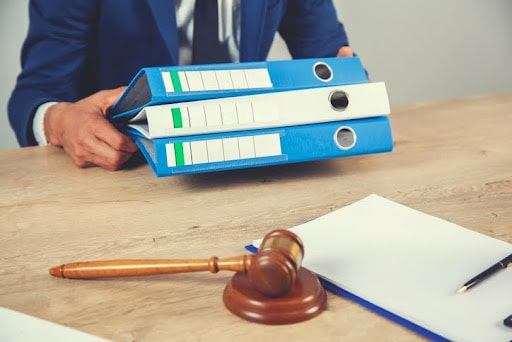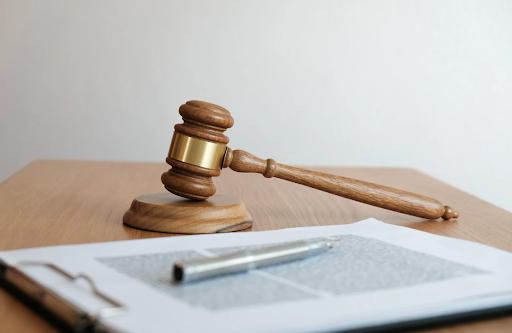What Does a Slip and Fall Lawyer Do for a Client?
Slip and fall accidents can occur anywhere—from a grocery store to an office building, or even on a public sidewalk. These incidents might seem minor at first, but they can lead to serious injuries that affect your physical health, emotional well-being, and financial stability. When an accident like this occurs, it’s essential to know that you have legal rights, and a slip and fall lawyer can help you protect those rights.
A slip and fall lawyer is a legal professional who specializes in premises liability cases, particularly those involving accidents where someone slips, trips, or falls due to unsafe conditions on someone else’s property. This article will explore the specific services and expertise a slip and fall lawyer provides, helping you understand when and why to seek legal assistance.
1. Initial Consultation and Case Evaluation
The first step in any legal process is the initial consultation, where the lawyer will evaluate the circumstances of your case. This consultation is usually free and serves several purposes:
- Understanding the Incident: The lawyer will listen to your account of the slip and fall accident, gathering details about when, where, and how the accident occurred. They will ask questions about the conditions leading up to the fall, any witnesses, and the injuries sustained.
- Assessing the Viability of the Case: Not every slip and fall incident results in a viable legal case. The lawyer will assess whether the property owner may be legally liable for your injuries. This involves analyzing factors like the property owner’s duty of care, whether they breached that duty, and whether that breach directly caused your injuries.
- Explaining Your Legal Rights: During the consultation, the lawyer will explain your legal rights and the potential avenues for seeking compensation. They will discuss the concept of premises liability and how it applies to your situation.
- Outlining the Legal Process: The lawyer will walk you through the steps involved in pursuing a slip and fall claim, from filing the initial complaint to negotiating settlements or going to trial.
2. Investigating the Accident
Once you decide to hire a slip and fall lawyer, the next crucial step is investigating the accident. This process is vital to building a strong case and involves several key activities:
- Gathering Evidence: The lawyer will collect all available evidence related to the incident. This includes photographs of the accident scene, surveillance footage, witness statements, and any available incident reports. The goal is to establish the hazardous condition that caused your fall and prove that the property owner was aware or should have been aware of the danger.
- Reviewing Medical Records: Your medical records play a critical role in demonstrating the extent of your injuries and how they were caused by the slip and fall. The lawyer will review these records to ensure they accurately reflect the injuries and correlate with the timing of the accident.
- Consulting Experts: In some cases, the lawyer may consult with experts such as medical professionals, safety inspectors, or accident reconstruction specialists. These experts can provide testimony or reports that support your claim, particularly if the case involves complex issues like structural defects or long-term medical conditions.
- Determining Liability: A key part of the investigation is determining who is liable for the accident. The lawyer will evaluate whether the property owner, manager, or another party is responsible for the unsafe condition that led to your fall. In some cases, multiple parties may share liability.
3. Communicating with Insurance Companies
One of the most challenging aspects of a slip and fall case is dealing with insurance companies. Insurance adjusters are trained to minimize payouts, and without legal representation, you may receive less compensation than you deserve. A slip and fall lawyer can handle all communications with the insurance company on your behalf, ensuring that your interests are protected.
- Negotiating Settlements: The lawyer will negotiate with the insurance company to reach a fair settlement that covers your medical bills, lost wages, pain and suffering, and other damages. They will use the evidence gathered during the investigation to strengthen your bargaining position.
- Preventing Lowball Offers: Insurance companies often offer a quick settlement that is far less than what you are entitled to. A lawyer will recognize these tactics and advise you on whether a settlement offer is fair or if you should hold out for a better deal.
- Handling Documentation: The legal process involves a significant amount of paperwork. The lawyer will manage all necessary documentation, including submitting claims, filing legal motions, and responding to insurance requests. This ensures that all paperwork is filed correctly and on time.
- Advising on Statements: It’s important to be cautious about what you say to insurance adjusters, as they may use your statements against you to reduce their liability. Your lawyer will guide you on how to respond to questions or, in many cases, handle the communication entirely.
4. Filing a Lawsuit and Legal Representation in Court
If the insurance company refuses to offer a fair settlement, or if the property owner denies liability, your slip and fall lawyer may advise filing a lawsuit. Filing a lawsuit initiates the formal legal process, and your lawyer will be with you every step of the way:
- Drafting the Complaint: The lawyer will draft a legal complaint that outlines your case against the defendant (the property owner or other liable parties). The complaint will detail the circumstances of the accident, the injuries sustained, and the legal basis for the claim.
- Discovery Process: During the discovery phase, both sides exchange information and evidence related to the case. Your lawyer will handle this process, gathering additional evidence, deposing witnesses, and reviewing the defendant’s responses. Discovery is crucial for building a robust case and preparing for trial.
- Pre-Trial Motions: Before the trial begins, your lawyer may file pre-trial motions to resolve certain legal issues, such as requesting the exclusion of inadmissible evidence or seeking a summary judgment if the facts are undisputed.
- Representing You in Court: If the case goes to trial, your lawyer will represent you in court, presenting your case to a judge or jury. This involves making opening statements, examining witnesses, presenting evidence, and making closing arguments. Your lawyer will use their expertise to advocate for your rights and seek the compensation you deserve.
- Navigating the Appeals Process: If the court’s decision is not in your favor, your lawyer may advise filing an appeal. The appeals process is complex and requires a thorough understanding of legal precedents and appellate procedures. Your lawyer will guide you through this process if necessary.

5. Securing Compensation for Damages
The ultimate goal of a slip and fall lawyer is to secure compensation for the damages you have suffered. Compensation in a slip and fall case can cover a wide range of losses, including:
- Medical Expenses: This includes both current and future medical bills related to the injury, such as hospital stays, surgeries, physical therapy, and any necessary medical devices.
- Lost Wages: If the injury caused you to miss work, you could be compensated for lost wages. In cases of long-term or permanent disability, you may also be entitled to compensation for lost earning capacity.
- Pain and Suffering: This refers to the physical pain and emotional distress caused by the injury. Calculating pain and suffering damages can be complex, as it involves both tangible and intangible factors.
- Disability and Disfigurement: If the slip and fall accident results in a permanent disability or disfigurement, you may receive additional compensation to account for the impact on your quality of life.
- Loss of Consortium: In some cases, the spouse or family members of the injured party may be entitled to compensation for the loss of companionship and support resulting from the injury.
- Punitive Damages: In cases where the property owner’s negligence was particularly egregious, the court may award punitive damages. These are intended to punish the defendant and deter similar conduct in the future.
6. Providing Emotional Support and Guidance
Suffering a slip and fall accident can be a traumatic experience, leading to not only physical injuries but also emotional and psychological distress. A slip and fall lawyer does more than just handle the legal aspects of your case—they also provide emotional support and guidance throughout the process.
- Offering Reassurance: A lawyer understands the stress and uncertainty that comes with a slip and fall case. They will provide reassurance, explaining each step of the process and what you can expect. Knowing that a knowledgeable professional is handling your case can alleviate some of the anxiety associated with legal proceedings.
- Being a Trusted Advocate: Your lawyer is your advocate, working tirelessly to ensure that your rights are protected and that you receive fair treatment. They will stand up to insurance companies, property owners, and other parties on your behalf, giving you the confidence that your case is in good hands.
- Helping You Make Informed Decisions: Throughout the case, your lawyer will advise you on important decisions, such as whether to accept a settlement offer or proceed to trial. They will present the pros and cons of each option, helping you make informed choices that align with your best interests.
- Providing Resources: In addition to legal advice, your lawyer can connect you with resources that may aid in your recovery, such as medical specialists, support groups, or financial planning services. These resources can help you manage the aftermath of the accident and move forward with your life.
Understanding the Legal Timeline and Statute of Limitations

Every slip-and-fall claim is governed by strict deadlines. In Texas, you generally have two years from the date of the accident to file a personal injury lawsuit. Miss that deadline and the court will almost certainly dismiss your case, no matter how strong the evidence. A lawyer tracks these key dates, files your complaint on time, and keeps the case moving through discovery, settlement talks, and trial if needed. They’ll also monitor court-imposed scheduling orders so motions, witness lists, and expert reports are submitted before cut-offs. This proactive management prevents costly delays and preserves your right to compensation.
How Comparative Negligence Can Affect Your Recovery
Texas follows a modified comparative fault rule known as the 51 percent bar. This means you can still recover damages if you were partially responsible for the fall, as long as your share of fault does not exceed 50 percent. However, any compensation awarded will be reduced by the percentage of fault assigned to you. For example, if a jury awards $100,000 but finds you 20 percent responsible for not watching where you walked, you receive $80,000. A skilled lawyer gathers evidence, such as maintenance logs, prior complaints, and safety-code violations, to minimize your share of fault and maximize the final recovery.
Common Defenses Property Owners Raise and How Lawyers Counter Them
Businesses and insurers rarely admit liability outright. They may argue that the hazard was “open and obvious,” that they had no reasonable notice of the danger, or that you were trespassing. Some even claim the area was cordoned off or that warning signs were posted. Your attorney addresses these defenses by securing surveillance video, interviewing employees, and comparing incident reports from similar past accidents on the premises. If the owner violated building codes or industry safety standards, expert testimony can dismantle the “no-notice” argument and show the hazard was foreseeable and preventable.
Contingency Fee Representation: No Up-Front Costs
Many injured people worry they can’t afford legal help while medical bills pile up. Slip-and-fall attorneys typically work on a contingency fee basis, meaning you pay nothing up front. The lawyer advances litigation costs, court filing fees, expert-witness expenses, and deposition transcripts, and is paid a percentage of the settlement or verdict only if the case succeeds. If there’s no recovery, you owe no attorney’s fee. This arrangement aligns your lawyer’s interests with yours: they are motivated to secure the largest possible award as efficiently as possible. It also provides access to justice for people who might not otherwise be able to fight large corporations or property owners without upfront financial resources.
Steps You Can Take to Strengthen Your Own Case
Even with experienced counsel, your participation matters. Keep all medical appointments and follow doctors’ orders gaps in treatment can be used to argue your injuries aren’t serious. Photograph visible bruises, casts, or mobility aids to document healing progress. Save receipts for out-of-pocket expenses, from prescription medications to Uber rides to physical therapy. Maintain a journal describing pain levels and limitations on daily activities; these firsthand notes provide compelling evidence of pain and suffering. Finally, avoid posting accident details on social media, defense attorneys scour posts for inconsistencies they can use against you.
When to Seek Legal Assistance
Understanding when to seek legal assistance is crucial for protecting your rights after a slip and fall accident. Here are some situations where hiring a slip and fall lawyer is particularly important:
- Severe Injuries: If the slip and fall accident resulted in serious injuries that require extensive medical treatment, surgery, or long-term care, you should seek legal assistance to ensure you receive adequate compensation.
- Disputed Liability: If the property owner or their insurance company disputes liability or claims that you were partially at fault, a lawyer can help establish the facts and build a strong case.
- Insurance Company Pressure: If the insurance company is pressuring you to settle quickly or offering a low settlement amount, a lawyer can negotiate on your behalf and ensure that you receive fair compensation.
- Unclear Legal Rights: If you are unsure about your legal rights or the potential value of your claim, consulting with a lawyer can provide clarity and help you make informed decisions.
- Complex Cases: Slip and fall cases that involve multiple parties, severe injuries, or complicated legal issues require the expertise of a skilled lawyer who can navigate the complexities and advocate for your best interests.
Contact the Law Offices of Michael J. Gopin, PLLC, Today!
A slip and fall lawyer provides essential services and expertise to help clients navigate the legal challenges that arise after an accident. From initial consultation and case evaluation to investigating the accident, negotiating with insurance companies, and representing you in court, a slip-and-fall lawyer is your advocate every step of the way. They work tirelessly to secure the compensation you deserve, providing both legal representation and emotional support throughout the process.
If you or your loved one has been in a slip and fall accident in El Paso, TX, or Las Cruces, NM. Do not hesitate to call the Law Offices of Michael J. Gopin today at (915) 333-3333. We will protect your rights and ensure a fair outcome. Michael Gopin is not licensed in New Mexico. Lee Montion is licensed in New Mexico.
Michael J. Gopin has practiced law in El Paso since 1987. Even after more than 30 years, he still remembers his first jury case. It was two weeks after receiving his license, when he represented a person whose life had been forever changed after being blinded in a work-related incident...

